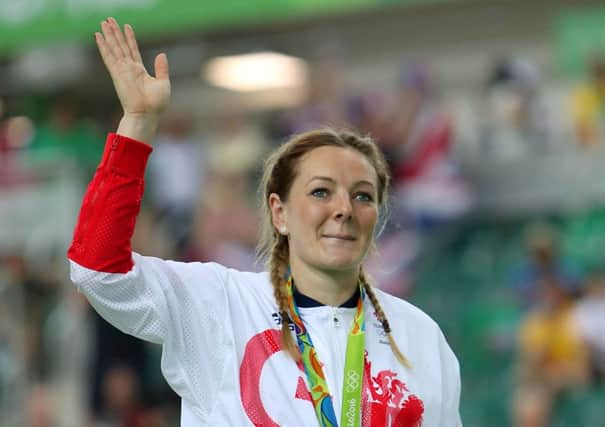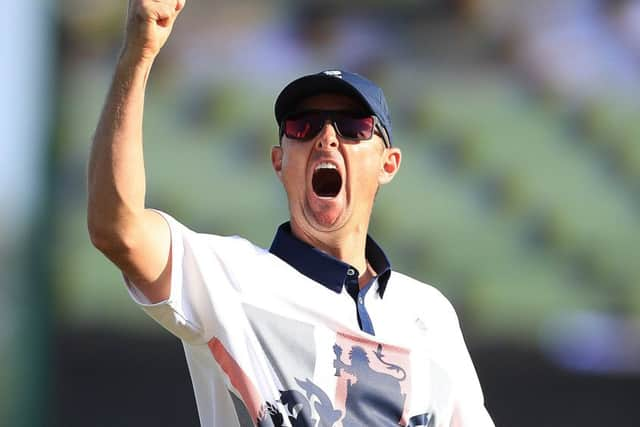Nick Westby: Time to revel in Rio after golden generation build on London 2012


If Team GB’s extraordinary performance in the medals table at these Rio Olympics is anything to go by – collecting our biggest haul at an overseas Games – the message has been received loud and clear.
This generation of athletes has indeed been inspired by the success of their compatriots and the feelgood factor that surrounded the London Games.
Advertisement
Hide AdAdvertisement
Hide AdIn Rio, there were the dependable protagonists on whose shoulders we now expect a gold-medal winning performance at the highest level; the likes of Sir Bradley Wiggins, Jason Kenny and Laura Trott in the velodrome, Yorkshire’s own Alistair Brownlee in the triathlon, Mo Farah on the track and Andy Murray on the tennis court and, of course, our queen of the ring, Nicola Adams.


But amid the rush of medals, there were plenty of success stories that came to represent the embodiment of the ‘Inspire a Generation’ sentiment from the vast spectrum of British sport.
Take these three examples.
Amy Tinkler was a 12-year-old gymnast in North Durham four years ago, who was moved to action by sitting in the arena at London 2012 and watching the all-around final.
“From that, it made me want it even more, it was incredible and made me so motivated,” said Tinkler, who last Tuesday won Britain’s second individual medal in Olympic gymnastics when she claimed bronze in the floor final.


Advertisement
Hide AdAdvertisement
Hide AdAt the time of the last Olympics, Leeds’ Katy Marchant, right, was a junior prospect in Toni Minichiello’s heptathlon training group.
But instead of being inspired by the standard-bearer of that little clique – Jessica Ennis-Hill – a twist of fate would see Marchant go from nothing to Olympic medallist in just three years.
Minichiello noticed the power output she produced at a wattbike session and suggested her to the British Cycling chiefs at the Manchester Velodrome, or the ‘medal factory’ as it has come to be known among those prolific winners of Olympic jewellery.
Three years later, Marchant rode to a bronze medal in track cycling’s women’s sprint.
Advertisement
Hide AdAdvertisement
Hide AdIf Tinkler and Marchant’s stories illustrate the leaps and bounds that can be made during an Olympic cycle – when a person has been so inspired to be the best version of themselves – then this next case study shows how the deeds of Olympians can invigorate a mindset.
In 2012, Justin Rose was one of those sportsmen who almost had it all. Riches beyond belief, notoriety around the world, and enormous respect from his peers.
Within 12 months he had also won one of his game’s defining prizes, the US Open.
But golf is an individual sport, save for one week every two years when the Ryder Cup stirs the emotions.
Advertisement
Hide AdAdvertisement
Hide AdRose had rarely sampled the team environment. So when golf was reinstated into the programme for 2016, he saw his opportunity to taste for himself the fabled Olympic spirit.
Refusing to shun the Olympics as so many of his fellow members of the world’s elite did, Rose embraced the Games. He moved into the athletes village, partied at the opening ceremony, ate breakfast with gymnasts and badminton players on a fraction of his annual earnings, and wore his Team GB uniform with enormous pride.
Rose was a worthy winner of Olympic gold in the men’s golf tournament.
“I felt excited about competing, excited about giving it 100 per cent,” he said. “Then when I actually got down to Rio and experienced the whole vibe of the Olympics, to come out of it with a medal is incredible.”
Advertisement
Hide AdAdvertisement
Hide AdWith the Rio Olympics drawing to a close last night, Team GB have provided us with another multitude of memories and inspirational moments.
The cycle to Tokyo 2020 will begin now. How many more Marchants and Tinklers are out there, earnest young prospects who just need a spark to propel them on their Olympic journey?
How many more Roses are there, sportsmen and women, safe in the natural cocoon of their own individual or team pursuits who do not yet know the uplifting feeling of representing their country on the grandest stage of all?
For Rio to be replicated, the medal factories need to keep churning out these champions.
Advertisement
Hide AdAdvertisement
Hide AdThe lottery funding needs to continue, and will do. Think of where this country was 20 years ago in Atlanta, one gold medal, to where we are now in Rio, 27 golds.
UK Sport funding is based on medal success, so cycling and rowing should remain strengths for this country.
Great Britain exceeded expectations in the swimming pool and on the gymnastics floor in Brazil, so those sports will be remunerated accordingly.
If there is a balance to be struck with UK Sport funding, it is that those sports that do not medal see their funding cut accordingly. The progress Great Britain made in team sports like volleyball, basketball and handball in the run-up to London was never built on because they did not get close to a medal and, therefore, saw their funding either slashed or cut completely. We had no representation in Rio in any of those sports.
Advertisement
Hide AdAdvertisement
Hide AdBasketball, for one, is seeing huge increases in participation, but it lacks the funding to create an elite level and so lags behind.
Improving and harnessing the mass participation amongst those children, and people who are not considered to be in the elite, is an area the authorities can improve.
A greater spread of the funding would also help.
It is a difficult one. If you take away from cycling to give to basketball, do you reduce the chances of finding the next Jason Kenny?
It is a debate for another day.
For now let us revel in Rio, and how London truly did inspire a generation.